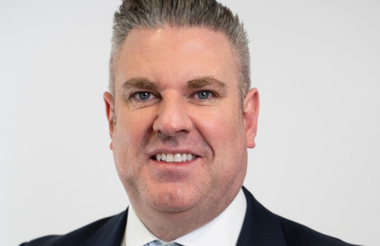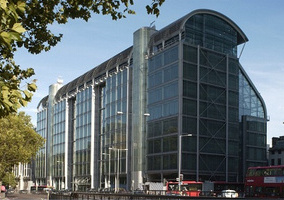The Charity Commission has defended comments its chief executive gave to a national newspaper at the weekend on senior pay after some sector leaders voiced criticism on social media.
On Saturday evening, the Telegraph published an analysis of the regulator’s data, which showed that the number of employees in the sector earning more than £400,000 had risen from 27 in 2019 to 44 in 2024.
It also showed that the number of charities paying such wages had increased from 14 to 19 in that time.
Commenting on the findings, commission CEO David Holdsworth told the Telegraph: “Large and complex charities must attract talented people to run them, but the public rightly expects the demands of executive jobs in charities to be balanced with the selflessness that underpins what it means to be charitable. So do we.
“Careful decisions about pay foster public trust and confidence in the sector as well as best serve the charity’s beneficiaries now and into the future.
“Trustees are legally bound to make prudent decisions on all charity spending, including pay, and if this line is crossed, we will take action.
“In a sector that contributes almost £100bn to our country, less than 5% of charities pay anyone a salary above £60,000. Many charities run only on volunteers.”
Holdsworth added that the commission had introduced greater transparency on every charity’s entry on the public register “to increase public accountability”.
It also shared figures with the Telegraph that registered charities spend £20bn more today on charitable activity than they did in 2018, a 30% increase, “reflecting increased demand for often-vital services and support”.
‘Disrespectful’
Writing on social media, Morecambe Bay Partnership CEO Sarah Mason said: “This is utterly tone deaf and shows literally no understanding of the motivations of charity CEOs. And it’s disrespectful in my view too.”
She added: “Do the commission not realise that unlike business CEOs/directors we worry about our beneficiaries, if we’re making a positive impact on communities, and whether our existing and potential funders respect us and like what we do enough to support us.
“We do this on top of worrying about the regular business stuff like the bottom line, staff welfare, jobs, marketing, complex finances, external comms, partnership working, legislation, governance and income generation.”
Also commenting, former Vision North Somerset CEO Lauren Williams said: “Selflessness is privilege, harking back to the days when charity staff were women supported by their husbands or men with access to private wealth.
“Paying fairly enables charities to have more diverse staff, including those who actually need the money.”
In response to the criticism, a commission spokesperson said: “Our statement provided to a national newspaper in response to their analysis of pay data, including the number of charity staff earning more than £400,000 a year, reflects the commission’s long-standing position on the subject.
They added: “Views on pay in charities vary, but we are clear that prudence, transparency and accountability in charities are non-negotiable – the law requires this of trustees, and so does the public.”
Taking action
The commission confirmed to Civil Society that it is not taking any regulatory action over the 19 charities named by the Telegraph as paying staff over £400,000.
On its criteria for intervening over pay, the commission has repeatedly said it is “not a pay regulator” but expects charities to undertake benchmarking exercises to set appropriate salaries for senior positions, using its guidance about decision-making.
It does not set a cap on salaries or a maximum proportion of income that charities should spend on senior staff pay.
The commission has intervened over staff pay previously, issuing formal advice to the trustees of MSI Reproductive Choices in 2019 after the charity awarded a 100% bonus to its CEO on top of his £217,250 basic salary.
However, last year the charity’s trustees awarded their CEO a £239,000 bonus and the commission said it had “not seen any evidence” that they were not acting upon the 2019 advice.
Meanwhile, membership body ACEVO said in a statement that, overall, charity CEO pay had “remained stagnant” over the last decade at around £60,000.
“At ACEVO we believe that professionalism does not conflict with the values that lie at the heart of charities and other civil society organisations.
“We see good management, good staff and good values as mutually reinforcing and recommend that trustees follow the five principles of transparency, proportionality, performance, recruitment and retention, and process when agreeing executive pay.”
Related articles












